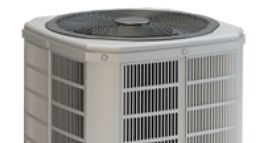Preparing for the Phase-Out of Freon®
As the United States completes the phase out of the refrigerant R-22, both homeowners and real estate agents will need to be informed about the possible impact on homeowners when looking to purchase homes with air conditioning units manufactured before 2015. Here’s what you should know about the latest regulations.
What is Happening?
R-22 (also known as Freon®) is a liquid or gas refrigerant often used in air conditioning equipment. Unfortunately, the Environmental Protection Agency found that it depletes the ozone layer and contributes to the greenhouse gas effect. To prevent continued damage to Earth’s protective ozone layer, R-22 is being phased-out.
What is the Timeline?
To protect the atmosphere, manufacturers stopped making systems that use R-22 in 2015.
On January 1, 2020, production of R-22 will cease, and the servicing of systems with R-22 will have to rely on stored and recycled quantities.
The lengthy phase-out period was designed to allow homeowners to move toward air-conditioning equipment that uses safer, alternative forms of refrigerant. As supplies of R-22 have become limited, prices have escalated, leading many to speed up the transition to alternative refrigerants and newer equipment ahead of the 2020 deadline.
Moving Forward
The cost of R-22 has increased due to limited availability, prompting homeowners to move toward replacing or retrofitting their existing systems. With the 2020 EPA deadline looming, there’s even more reason to install modern units that utilize alternative refrigerants.
After January 2020, air conditioning units using R-22 will have to depend on existing supplies. Unfortunately, there’s no way to predict where prices will go. While R-22 may be available until the end of the serviceable life of the air conditioner, it may become more expensive. Anyone who owns and operates air conditioning units using R-22 will need to weigh their options to either retrofit existing systems to accept alternative refrigerants, bear the escalating costs of R-22 or purchase a new air conditioning unit.
Real estate agents would be wise to become well versed on these changes and the potential impact on their clients – especially those buying and selling homes with air conditioning units installed before 2015. Purchasing a home warranty service agreement at closing that includes unlimited refrigerants and SEER matching for mismatched systems at no extra cost could also protect homeowners from unexpected out-of-pocket costs after 2020.
2-10 HBW offers comprehensive Systems and Appliances Home Warranties to help protect your clients from unexpected repair and replacement costs. Contact us to learn more.








